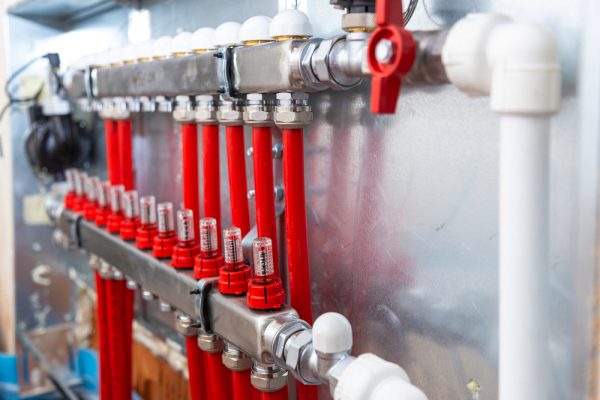Almost every homeowner maintains their home by mowing the lawn, decorating, or painting it. But apart from these regular chores, there are other essential ways to maintain and prevent safety hazards in your home such as taking preventative measures to maintain your home’s heating system.
Maintenance not only lengthens the life of your heating equipment but can also prevent any unexpected emergencies. Failing to take precautions when using your heating system can have devasting effects on a homeowner. It can result in a heating fire that can put your property and life in danger.
Appliances in your home such as space heaters, furnaces, and fireplaces are often the biggest culprits in causing fires. But any other gas or heating appliance can cause accidents. Therefore, precautions are necessary.
In this article, we will be discussing preventative maintenance tips for your heating system at home to keep you and your family safe from any unexpected safety hazards. So, if you’re interested to practice some easy tips, keep on reading!
1. Gas Safety Checks–
Conducting regular gas safety checks is necessary. Especially if you’re a resident of the UK, The Gas Safety Regulations (1998) outlines certain duties that landlords have. According to the regulations, it’s your responsibility to ensure all gas appliances in your home are efficient and safe for use.
To ensure the safety of your tenants and those residing in your home, a gas safety check should be conducted by a registered gas safe engineer to inspect all the gas appliances in your home for leaks. This will prevent any safety hazards from taking place such as leakage of a poisonous gas called carbon monoxide.
After the inspection, the engineer will provide you with a CP12 certificate that will contain all the details of the checks he/she carried out. Gas safety certificate cost is minimal; around £60, but may vary depending on the size of your property and the number of appliances. A gas safety check should be carried any time from 10 to 12 months after the last check.
Apart from ensuring safety, these regular checks also make sure the appliances in your home are working efficiently. If any part or appliance is damaged, you can replace it as soon as possible to make sure it functions the best to its ability.
2. Be Wary of Water Leaks and Burns–
Heating systems such as furnace and hydronic systems are extremely common in the UK. But since heating systems are only used for long periods in the winter months, when they’re unused for a while in the summer, water pipes can sometimes break which can result in water escaping from the pipes.
Although instances of water leaking from boilers aren’t that common, it’s still a possibility. Water leaking from your boilers can result in damage to your property. So, if you see any water leakage around your boiler, call an HVAC professional to inspect it right away.
Water leaks in furnaces may be rare but they tend to be more common in hydronic systems and can even be more threatening which is why keeping a close eye on your home’s heating system is necessary. Moreover, always make sure to drain your heater to keep water impurities at bay regularly to prevent water leakage and damage to the hydronic system.
3. Clean & Change Boiler Filter Regularly–
It’s recommended to change the boiler filter which is located behind a return air-vent on the boiler at least every three to four months otherwise the gunk that builds up in the filter could clog it and restrict airflow to your heating system. Maintaining a clean filter will keep impurities and airborne pollutants out of your home and also ensure the boiler works efficiently.
This is an easy DIY task that can be done by following some easy steps:
- Ensure the power supply to your boiler is switched off to prevent an electricity hazard
- Take out the air filter located in the air-vent
- If you use a disposable filter, it’s not possible to recycle it. So, the only option is to replace it with another filter of the same size. Make sure the arrows are printed on the filter point in the direction of the boiler.
- If you use a reusable filter, thoroughly brush or clean all the dirt, wipe it off with a damp cloth that is lint-free and wait for it to dry. Then, insert it back in.
- Turn the power supply and boiler back on.
4. Test Your CO Detectors–
This is another essential step to maintain the heating system in your home. CO detectors detect a carbon monoxide leakage – a poisonous gas that can cause a fire or explosion and prove to be life-threatening. So, as soon as the heating season arrives, make sure the CO detectors in your home are working and have a fresh set of batteries installed.
5. Invest in a Programmable Thermostat–
A programmable thermostat is a thermostat that is designed to adjust temperatures according to a pre-set schedule. You can adjust the heating and cooling to work based on your schedule such as whenever you are home. This will help you control the heating system in your home while making sure it works efficiently and also reduces your energy bills.
6. Go Green – Get a Heat Pump–
Getting a heat pump will have several advantages for you and the heating system in your home. Firstly, it will take the burden off of your heating system and prevent it from working overtime while also helping you protect the environment around you.
A heat pump is a part of a heating and cooling system installed outside your home. In winter, a heat pump will catch heat from the cold air outside and transfer it indoors and in summer, it will catch heat from the outdoor and cool the indoors of your home.
Although they are powered by electricity, they release 0% emissions and are environmentally friendly, and also help keep your energy bills low.
Conclusion
Taking preventative maintenance measures will have several benefits for you and your heating system at home. From reducing cost, keeping safety hazards at bay, and preventing the system from working overtime, it will ensure the complete efficiency of the system. And ensure you welcome winters without any worry of your heating system breaking down. We hope you find our tips helpful!












